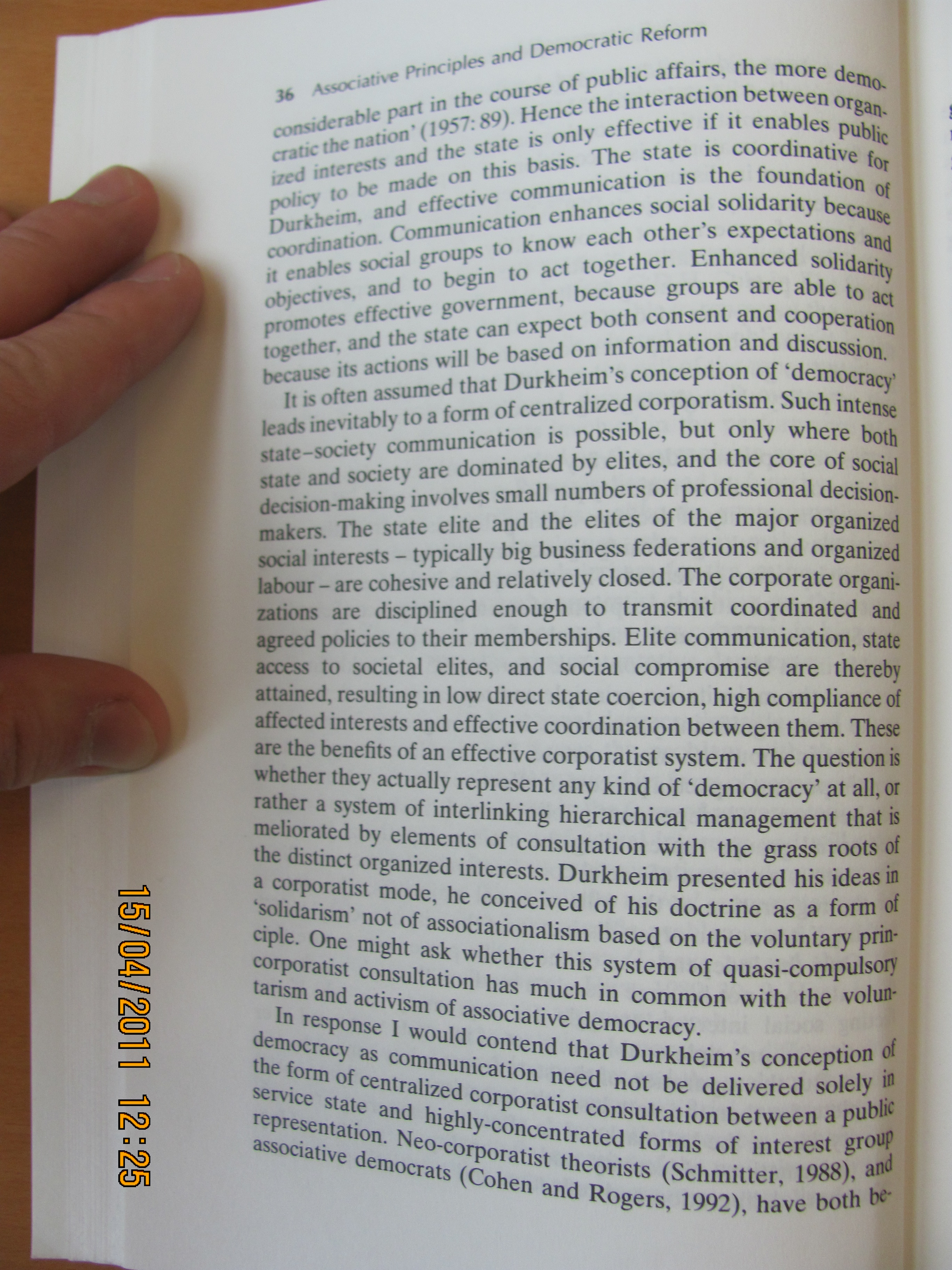55541 IMG#24

16 AssocMdw Principłes and Democratic Reform
oonsaderabłe part in the course of public affairs, the morę demo-crade the nation' (1957:89). Hence the interaction between organ-ized interests and the State is only effective if it enables public pdicy to be madę on this basis. The State is coordinative for Durkheim. and effective communication is the foundation of coordination. Communication enhances social solidarity because it enables social groups to know each other’s expectations and objęci i ves, and to begin to act together. Enhanced solidarity promotes effective govemment, because groups are able to act together. and the State can expect both consent and cooperation because its actions will be based on information and discussion.
It is often assumed that Durkheim’s conception of ‘democracy’ leads inevitably to a form of centralized corporatism. Such intense state-society communication is possible, but only where both State and society are dominated by elites, and the core of social decision-making involves smali numbers of professional decision-makers. The State elite and the elites of the major organized social interests - typically big business federations and organized labour - are cohesive and relatively closed. The corporate organi-zations are disciplined enough to transmit coordinated and agreed policies to their memberships. Elite communication, State access to societal elites, and social compromise are thereby attained, resulting in Iow direct State coercion, high compliance of affected interests and e£fective coordination between them. These are the benefits of an effective corporatist system. The ąuestionis whether they actually represent any kind of ‘democracy’ at all, or rather a system of interlinking hierarchical management that is meliorated by elements of consultation with the grass roots of the distinct organized interests. Durkheim presented his ideas in a corporatist modę, he conceived of his doctrine as a form of ‘solidarism’ not of associationalism based on the voluntary prin* cipie. One might ask whether this system of quasi-compulsory corporatist consultation has much in common with the vohm-tarism and activism of associative democracy.
In response I would contend that Durkheim’s conception of democracy as communication need not be delivered solely in the form of centralized corporatist consultation between a public service State and highly-concentrated forms of interest group representation. Neo-corporatist theorists (Schmitter, 1988), and associative democrats (Cohen and Rogers, 1992), have both bn*
Wyszukiwarka
Podobne podstrony:
IMG#08 20 Associative Principles and Democratic Reform yoluntary associations in order to do so. Ass
IMG#10 22 Associative Principles and Democratic Reform public power and of the devolved associationa
IMG#18 30 Associative Principles and Democratic Reform gain the upper hand and impose their view on
IMG#14 26 Associative Principles and Democratic Reform democratic naturę of the ‘primary association
IMG#20 32 Associative Principles and Democratic Reform Laski in ‘The Problem of Administrative Areas
88880 IMG#28 40 Associative Principles and Democratic Reform democracy as communication have the adv
82043 IMG#22 34 Associaftve Principles and Democratic Reform contradśction with centralized, bureauc
więcej podobnych podstron